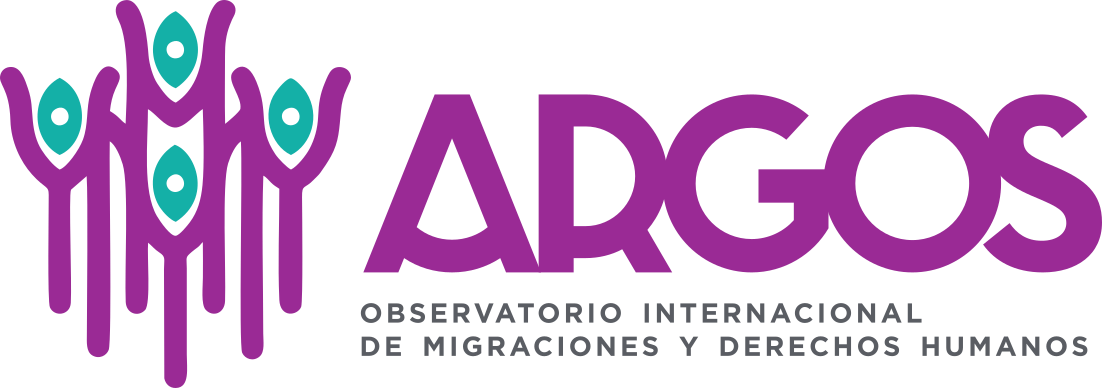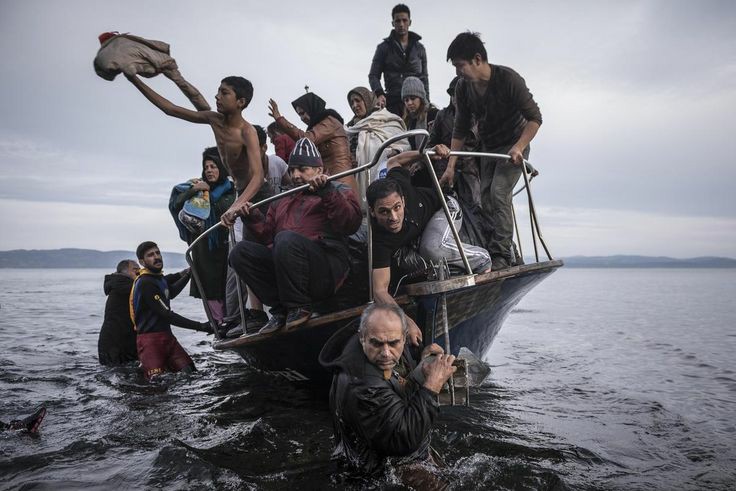Looking at human mobility towards Europe involves the exercise of looking at the big picture, and then zooming in on very particular realities and the very concrete dynamics that affect day-to-day life. First of all, Europe, and especially its western part, has become a privileged migratory destination in the world since the middle of the 20th century, once the post-war crisis was overcome. More recently, the countries of southern Europe have also become migratory destinations, as well as obligatory transit points for those moving from Africa and also from the Middle East, Central and East Asia to the more advanced economies of the north of the continent.
Beyond how the different waves of migration have been able to reach Europe, settle and integrate into the host communities, a particular concern is the extent to which the increasing restrictions and controls on entry to European countries increase the risks of migratory displacement to levels that jeopardize the human rights of migrants, with a deterrent intention of debatable results. This excess of restrictions and controls may be forcing more and more people to cross the Mediterranean Sea in fragile boats, to cross European roads in trucks not suitable for transporting people, and even to board containers of goods, in all cases at great risk.
Within the drama of human mobility in Europe, the situation of refugees and the European Union’s migration policies stand out. A good part of the people who enter Europe seeking refuge do so by fleeing situations that have been spurred or directly provoked by military interventions by countries of the North Atlantic Treaty Organization (NATO). Such are the cases of Libya, Syria, Iraq and Afghanistan, as well as other complex political situations.
While it is true that most European Union countries have accepted the implementation of a quota mechanism for refugees, the blocking of this policy by the governments of countries such as Poland, the Czech Republic, Slovakia and Hungary only aggravates the situation of people who are confined in refugee camps that do not have the minimum conditions for a life with dignity and respect for human rights, particularly in Greece.
Likewise, the COVID-19 pandemic has only aggravated the situation of refugees and migrants in several ways. On the one hand, many shelters became centers for the spread of the virus, refugees and migrants have been stigmatized as carriers of the disease, and on top of that, the confinement measures, as well as their economic impact, have led to a decrease in the receipt of remittances in the countries of origin of migrants, which may have prompted many people from those nations to take the road to Europe towards the end of 2020, as suggested by the recent migrant crisis in the Canary Islands.
The restrictions adopted to contain the pandemic also meant the closure of ports, which is why many migrant rescue boats chartered by various European NGOs have been forced to wait weeks to be accepted in some Mediterranean port, with all that this entails in terms of supplies, exhaustion, conflicts among the rescued people, etc.
Another pressing problem is that of people who can be considered climate migrants, or those who leave their homes when they realize that climate change does not allow them to continue with their traditional economic activities, particularly agriculture, and who are forced to seek their livelihoods in better-off economies, but which are also usually the countries that contribute most to climate change itself, due to their high levels of consumption of energy and resources of all kinds.
A particularly worrying aspect of migrations in general, and those heading for Europe in particular, is the lack of knowledge we have of the true number of migrants whose movements go undetected by the authorities, and who possibly fall into the hands of mafias that set in motion processes marked by exploitation, violence and abuse, with the human rights violations that all this entails. It is currently assumed that some 110 thousand people cross the Mediterranean Sea every year to reach the coasts of the European Union, at least until 2019, but we do not know how many pass through without being quantified.
The World Organization for Migration has denounced the use of violence and practices such as mass expulsions that violate international law and human rights. Although they do not refer to any country in particular, many denunciations point to the serious situation that has been occurring along the Balkan route.
It has also been denounced that certain countries establish subtle mechanisms to avoid receiving refugees and migrants from Muslim-majority countries, which can only be described as a discriminatory policy based on religion or national origin.
A particularly dramatic situation, which should appeal to the consciences of European rulers, is the type of agreements, including funding, to the Libyan authorities to contain migration across the Mediterranean Sea. As volunteers on NGO rescue ships operating in the area have been denouncing, returning refugees to a country at war is a violation of international maritime law, and is completely unacceptable from a humanitarian point of view. The conditions in which migrants and refugees survive in Libya are completely unacceptable for democratic countries. Yet human rights violations are condoned as the price to be paid to prevent illegal migrations to Europe.
Despite this picture, there is also room for optimism. Numerous non-governmental organizations are making great efforts to rescue migrants on the high seas, the populations of many countries are aware of the need to assist those arriving in their countries, and justice systems often make decisions in favor of migrants, taking into account their fundamental rights. In the context of the pandemic, some countries have chosen to take measures in favor of illegal migrants, such as suspending deportations or issuing temporary general permits. It is also true that these measures have been taken in the context of a growing concern about the possible shortage of foreign workers for all kinds of jobs, but particularly for those considered essential.
The challenges of migration and refugee in Europe are numerous and require a consensual, coherent approach based on international humanitarian law and human rights, but above all a commitment by institutions, non-governmental organizations and citizens in general to solidarity and humanitarian assistance.

